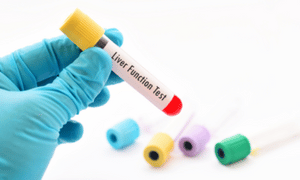Many people with cancer are seeking alternative therapies. One such therapy that has recently emerged is the Fenbendazole protocol, following some inspiring fenbendazole cancer success stories
Fenbendazole (also called fenben) is a veterinary medicine used to treat worms and parasites in animals. It is often sold under the brand names Safe-Guard and Pancur.
Is Fenbendazole Safe for Humans?
The most recent studies have also shown that Fenbendazole can potentially be beneficial to pancreatic, ovarian, and colorectal cancer. As a result, it is generally considered safe for human use. (Mebendazole – which mainly treats human parasites, is from the same family of drugs).
Fenbendazole has not received approval from the Food and Drug Administration (FDA). However, many cancer patients report positive effects from taking the medication and following the Fenbendazole protocol to treat cancer.
Fenbendazole Dosage for Humans
Getting the proper fenbendazole dose for humans cancer is essential for patients who want to try the protocol.
You should always buy reputable brands such as SafeGuard or Panacur C. To overcome limited absorption by the digestive system’s tract itself, it’s recommended to take fenbendazole with food: adding the powder right into a meal may drastically improve its ability to enter circulation.
One study from the European Medicines Agency states that “Fenbendazole seems to be well tolerated in humans after oral exposure (single oral dose up to 2,000 mg/per person; 500 mg/per person for 10 consecutive days).”
To overcome limited absorption by the digestive system’s tract itself, it’s recommended to take fenbendazole with food: adding the powder right into a meal may drastically improve its ability to enter circulation.
Dosing for the First Few Weeks of Treatment
The most common basic starter Fenbendazole dosage for humans is 222 mg daily. The treatment protocol has patients take this dosage for three consecutive days, then take four days off.
This basic dosage is for the first few weeks of taking fenbendazole. During this time, the patient will monitor their body and pay attention to any symptoms that develop, such as issues with digestion or a general change in how they feel.

Some patients may experience symptoms as their body gets rid of toxins. This detoxification can last anywhere from a few days to a few weeks. Patients may experience flu-like symptoms, including body aches, headaches, joint pain, muscle pain, sweating, nausea, chills, and general malaise.
These reactions, while unpleasant, can indicate that the medicine is working and pathogens are being killed inside the body.
Patients need to drink enough fluids and rest frequently during the first few weeks of taking fenbendazole.
Increasing Fenbendazole Dosage in Humans
If the first few weeks are successful, patients can choose to increase their dosage until they are taking up to 2000 mg of Fenbendazole a day. Typically, Fenbendazole dosing is done in 222 mg increments. So, a patient would add 222 mg and monitor their symptoms for a few weeks before increasing the dose by another 222 mg.
If patients wish to take a higher dosage than 2000 mg of fenbendazole daily, it is best to consult a physician or Oncology Nurse.
Once patients have reached their desired results, they may choose to stay on the protocol using the basic starter dose.
How to Safely Monitor Your Fenbendazole Dosage
Fenbendazole for humans side effects
One of the most common side effects to monitor is the liver enzyme level, which can become elevated while taking fenbendazole. Therefore, patients need to get a frequent blood count while taking fenbendazole and participating in the fenben protocol.
After one month of fenbendazole treatment, patients should get a comprehensive metabolic panel (CMP). This standard blood test will check the liver and kidney function to ensure they have not increased too much.
If liver and kidney blood levels are elevated, patients should lower their dosage and let their bodies adapt at a more gradual pace.

Take Fenbendazole Under the Care of a Trusted Health Care Professional
Cancer patients are strongly encouraged to use Fenbendazole supplements with support from a health care professional. This can help avoid interactions between the Fenbendazole protocol supplements and medications the patient is taking.
In addition, working with a trusted health care professional will help patients avoid potentially dangerous side effects that can come from long-term use, such as suppressing white blood cells, bone marrow, and the immune system.
NEXT: Learn more about the fenbendazole protocol and how an Integrative Oncology Nurse can help you determine if it’s right for you>>

Disclaimer: These statements have not been evaluated by the Food and Drug Administration. This product is not intended to diagnose, treat, cure, or prevent any disease.







